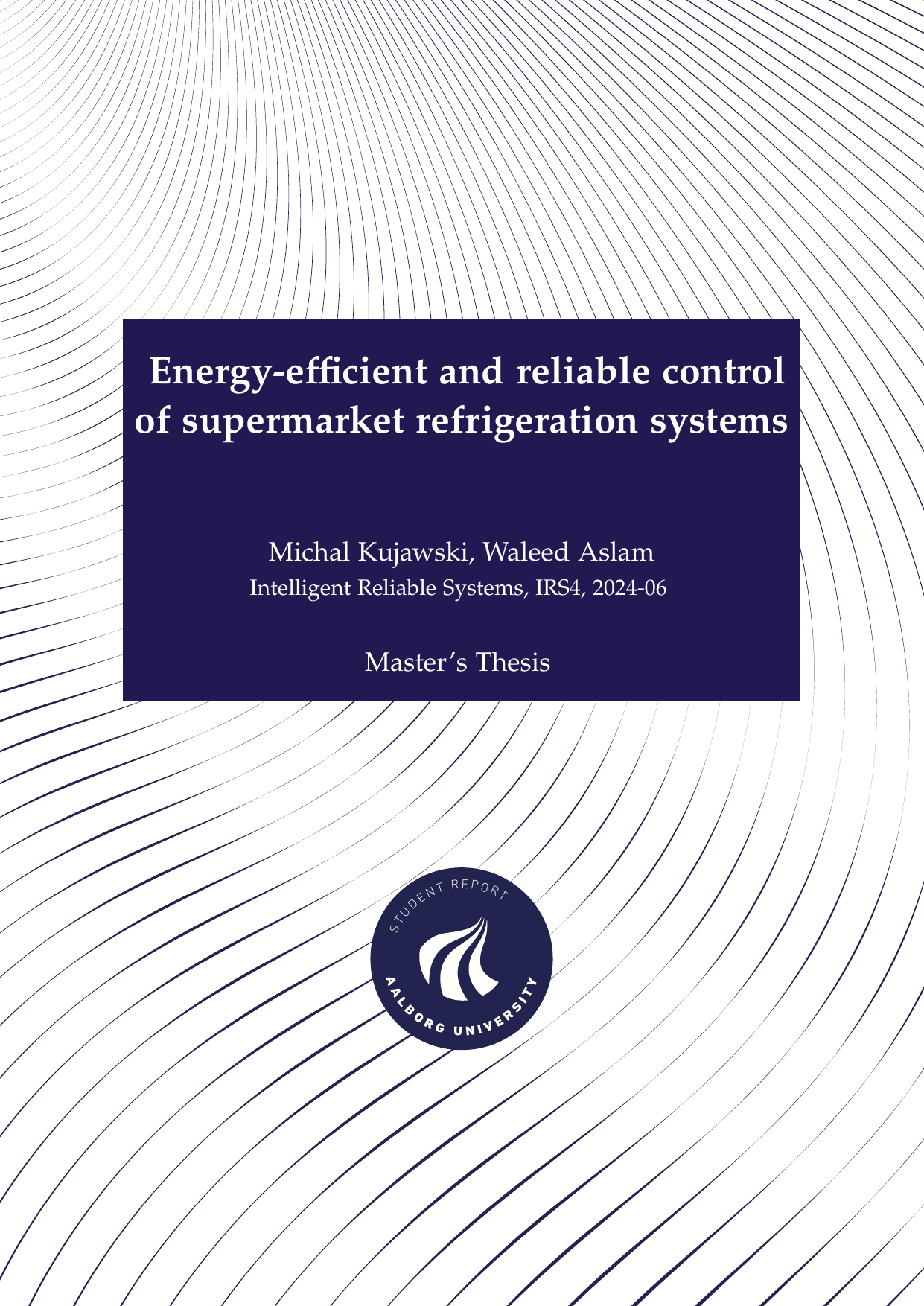
Energy efficient and reliable control of supermarket refrigeration systems
Authors
Term
4. Term
Publication year
2024
Submitted on
2024-06-03
Pages
110
Abstract
Thanks to large consumption of energy and thermal capacity of food stored in supermarket refrigeration systems, there exists a potential for optimising their use in terms of costs of energy, by exploiting changes in electricity prices. While moving the system’s load according to the prices can yield nontrivial savings, it has to be done in a way that respects operating constraints, especially food temperature. For that reason, 2 model predictive control schemes under varying electricity prices, including their reliability under temperature sensor fault, are presented in this thesis. As supermarket refrigeration systems are not suitable for first-principle modelling, datadriven methods, namely novel dynamic mode decomposition and neural networks are investigated for obtaining prediction models of compressors’ power and evaporation temperature for use in the controllers. To obtain the synthetic data for training models and perform simulation studies of the controllers, digital twin simulation models provided by Danfoss were used. Finally, the results demonstrate that the developed neural network model can be successfully used with the developed control schemes to decrease costs of energy by between 6.8% and 14.1% depending on the scenario.
Thanks to large consumption of energy and thermal capacity of food stored in supermarket refrigeration systems, there exists a potential for optimising their use in terms of costs of energy, by exploiting changes in electricity prices. While moving the system’s load according to the prices can yield nontrivial savings, it has to be done in a way that respects operating constraints, especially food temperature. For that reason, 2 model predictive control schemes under varying electricity prices, including their reliability under temperature sensor fault, are presented in this thesis. As supermarket refrigeration systems are not suitable for first-principle modelling, datadriven methods, namely novel dynamic mode decomposition and neural networks are investigated for obtaining prediction models of compressors’ power and evaporation temperature for use in the controllers. To obtain the synthetic data for training models and perform simulation studies of the controllers, digital twin simulation models provided by Danfoss were used. Finally, the results demonstrate that the developed neural network model can be successfully used with the developed control schemes to decrease costs of energy by between 6.8% and 14.1% depending on the scenario.
Documents
